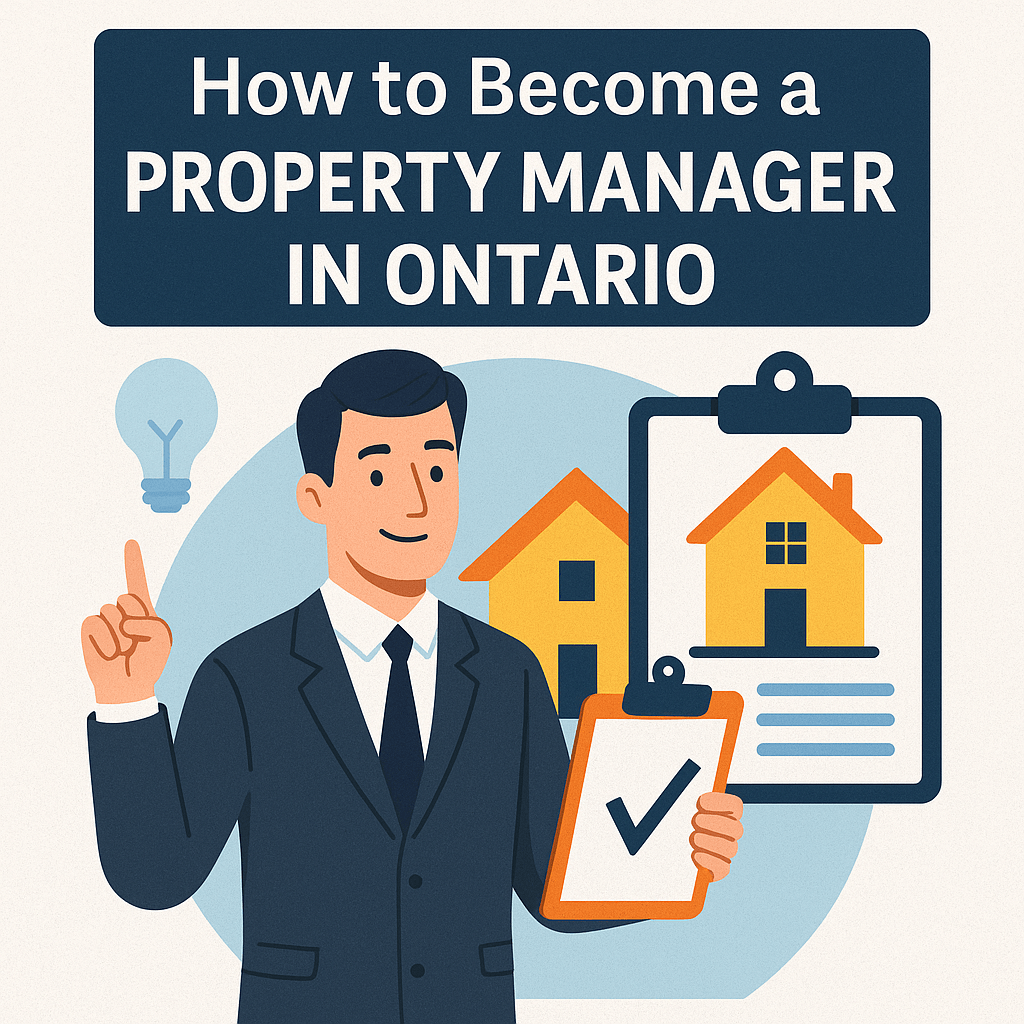
In This Article:
- ⚓ What Does a Property Manager Do in Ontario
- ⚓ Why Consider a Career in Property Management
- ⚓ Challenges in Property Management
- ⚓ Step-by-Step Guide to Becoming a Property Manager
- ⚓ Licensing Requirements in Ontario
- ⚓ Essential Skills for Success
- ⚓ Educational Opportunities
- ⚓ Advice From Experienced Ontario Property Managers
- ⚓ Taking the Next Steps
What Does a Property Manager Do in Ontario
A property manager acts as the bridge between property owners and tenants. Their responsibilities include:
- Collecting rent and addressing tenant concerns
- Coordinating repairs and maintenance
- Ensuring compliance with Ontario's housing laws
- Marketing vacant units and screening potential tenants
- Preparing financial reports for property owners
Understanding the Residential Tenancies Act is crucial, as it governs landlord and tenant relations in Ontario.
Why Consider a Career in Property Management
Property management is a growing field in Ontario due to the increasing demand for rental housing. Benefits of this career path include:
- Consistent demand for skilled managers
- Opportunities to work independently or with firms
- No mandatory university degree required
- Clear advancement pathways with experience
- Connection to the broader real estate industry
Challenges in Property Management
While rewarding, property management comes with its challenges:
- Handling emergency situations, such as urgent repairs
- Mediating tenant disputes
- Staying updated with evolving rental laws
- Managing late payments and lease violations
- Coordinating with reliable contractors

Step-by-Step Guide to Becoming a Property Manager
Educate Yourself:
- Study Ontario's rental laws and tenant rights.
- Learn basic building maintenance and safety standards.
- Understand financial aspects of property management.
Obtain Relevant Training:
- Enroll in property management courses offered by colleges or online platforms.
- Learn about real estate fundamentals and conflict resolution.
Gain Practical Experience:
- Start with assistant roles in property management firms.
- Volunteer to manage properties for acquaintances.
- Seek mentorship from experienced property managers.
Familiarize with Management Tools:
- Learn to use property management software.
- Understand maintenance tracking systems.
- Get comfortable with financial reporting tools.
Build a Professional Network:
- Connect with other professionals through real estate events and online forums.
- Network with contractors, real estate agents, and investors.
Licensing Requirements in Ontario
Licensing depends on the specific services you intend to offer:
- General Property Management: No specific license required. Must adhere to the Residential Tenancies Act.
- Leasing Services: Requires registration with the Real Estate Council of Ontario (RECO), completion of courses and exams, and affiliation with a registered brokerage.
- Condominium Management: Requires licensing through the Condominium Management Regulatory Authority of Ontario (CMRAO).
Professional certifications from organizations like IREM can enhance credibility and help win clients.
Essential Skills for Success
Key skills for property managers include:
- Communication: Interacting with tenants and owners clearly and effectively.
- Problem-Solving: Addressing issues quickly and efficiently.
- Organization: Managing multiple properties and tasks smoothly.
- Negotiation: Managing lease terms and contractor relations.
- Legal Knowledge: Understanding housing laws and compliance standards.
- Financial Management: Creating and tracking budgets and reports.
Educational Opportunities
Ontario offers various learning options for aspiring property managers:
- Colleges: Humber, George Brown, Seneca, and Conestoga
- Professional Bodies: REIC, ACMO
- Online Platforms: CREA, CMHC
Advice From Experienced Ontario Property Managers
At Blue Anchor Property Management, we've learned that:
- Building relationships with good contractors saves time and money.
- Preventing problems is easier than solving them later.
- Document everything thoroughly.
- Set clear expectations with tenants upfront.
- Understand local neighborhoods to manage properties better.
Taking the Next Steps
If you're ready to pursue this path, here's what to do:
- Take a property management course.
- Get real-world experience.
- Find a mentor.
- Study your local rental market.
- Create good systems for recordkeeping.
- Keep learning about market and legal changes.
Need help getting started? Contact Blue Anchor Property Management — we’re here to help guide your journey into property management in Ontario.


